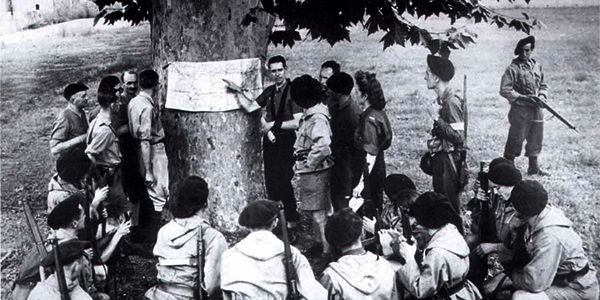This is the second part of a two piece series on strategic resistance. Read Part I here.
Humans are storytelling creatures, and our current strategy as a movement is a story, with a beginning, middle, and end. We need to ask whether that story matches up with reality, and with the way social change has happened throughout history.
So here’s the story as it stands:
- By raising awareness about the issues, we will create a shift in consciousness.
- A shift in consciousness will spark a mass movement.
- A mass movement can successfully end the murder of the planet by using exclusively pacifist tactics.
We all know this narrative, we hear it referenced all the time, and it resonates with a lot of people, but we need to examine it with a critical eye along with the historical narratives that are used to back it up. There are truths behind these ideas, but there is also the omission of truth, and we can decipher the interests of the historian by reading between the lines. Let’s take each piece of this narrative in turn to try and find out what’s been omitted and those interests that omission may be concealing.
So let’s start with the idea of “a shift in consciousness.” The idea that we can educate society into a new and different state of consciousness has been popularized most recently by writers like David Korten, who bases his analysis on the idea:
“The term The Great Turning has come into widespread use to describe the awakening of a higher level of human consciousness and a human turn from an era of violence against people and nature to a new era of peace, justice and environmental restoration.”
Another way that this idea is often mentioned is in the form of the Hundredth Monkey myth. A primatologist named Lyall Watson wrote about a supposed phenomenon where monkeys on one island began teaching each other to wash sweet potatoes in the ocean before eating them. Myth has it that once the hundredth monkey learned to do it, monkeys on other islands who had no contact with the original potato washing monkeys spontaneously began washing potatoes, exhibiting a kind of tipping point or collective jump in consciousness. The existence of this phenomenon has been thoroughly debunked, and even Watson himself has admitted that he fabricated the myth using “very slim evidence and a great deal of hearsay.” This hasn’t stopped optimistic environmentalists from invoking the hundredth monkey phenomenon to defend the idea that through raising our collective consciousness, by getting through to that hundredth monkey, we’ll spark a great turning of humankind away from the behaviors that are killing the planet.
Unfortunately, this line of thinking doesn’t pan out historically. Let’s take the example of resistance against the Nazi regime and the genocide it committed. And let’s look at some omitted historical information. In 1952, after the Nuremberg Trials, after all of the information about the atrocities of the holocaust had become common knowledge, still only 20% of German citizens thought that resistance was justifiable during wartime which, under the Nazis or any other empire, is all the time. And mind you, the question was not whether they personally would participate in the resistance; it was whether they thought any resistance by anyone was justifiable.
